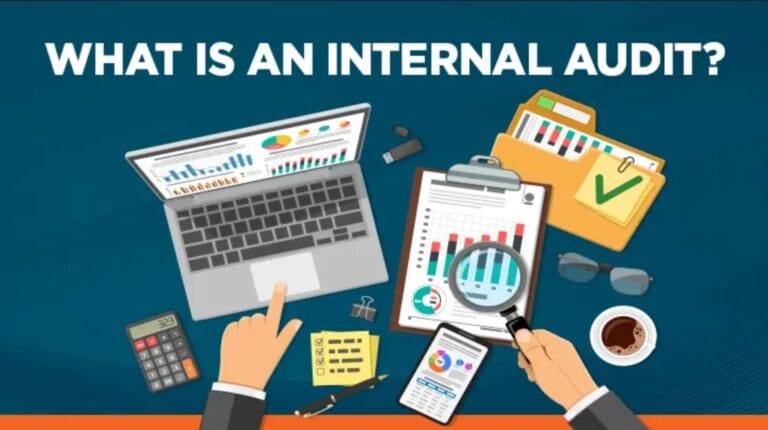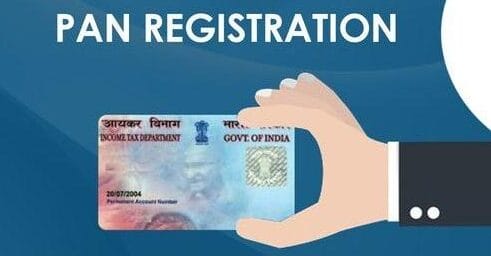Bank audit refers to the comprehensive examination and review of a bank’s financial statements, operations, internal controls, and compliance with regulatory requirements. It is conducted by external auditors (typically chartered accountants) who are independent of the bank to provide assurance on the accuracy and fairness of the bank’s financial reporting and operations. Here’s an overview of bank audit:
Objectives of Bank Audit
- Financial Statement Verification: Verify the accuracy and completeness of the bank’s financial statements, including balance sheet, income statement, and cash flow statement.
- Internal Control Assessment: Evaluate the effectiveness of internal controls over financial reporting, risk management, and operational processes within the bank.
- Compliance with Regulations: Ensure compliance with regulatory requirements, accounting standards, and guidelines issued by regulatory authorities such as the Reserve Bank of India (RBI) or other central banks.
- Asset Quality and Provisioning: Assess the quality of assets, including loans and investments, and evaluate adequacy of provisions made for loan losses and other contingencies.
- Fraud Detection: Detect and prevent fraud, misappropriation, or irregularities in financial transactions and operations of the bank.
Types of Bank Audits
- Statutory Audit: Mandated by regulatory authorities (e.g., RBI in India) to ensure compliance with statutory requirements and regulatory guidelines. It includes an examination of financial statements, internal controls, and compliance with banking laws.
- Internal Audit: Conducted by internal auditors employed by the bank to review internal controls, operational processes, risk management practices, and compliance with internal policies and procedures.
- Concurrent Audit: A real-time audit conducted concurrently with the transactions to ensure accuracy and reliability of financial records and compliance with operational guidelines.
- Special Audit: Conducted in response to specific concerns, issues, or regulatory directives requiring a detailed examination of certain aspects of the bank’s operations or financial statements.
Process of Bank Audit
- Audit Planning: Define audit objectives, scope, and methodology based on risk assessment, regulatory requirements, and internal policies of the bank.
- Risk Assessment: Evaluate risks associated with financial reporting, internal controls, asset quality, compliance, and operational processes.
- Audit Testing and Evidence Gathering: Perform audit procedures including analytical reviews, substantive testing, sampling, and verification of transactions, balances, and disclosures.
- Audit Reporting: Prepare audit reports summarizing findings, observations, and recommendations for improvement. Communicate audit results to management, board of directors, and regulatory authorities as required.
- Follow-Up and Monitoring: Monitor implementation of audit recommendations and corrective actions by the bank. Conduct follow-up audits to assess progress and ensure resolution of identified issues.
Importance of Bank Audit
- Financial Transparency: Ensure transparency and accuracy in financial reporting, providing stakeholders with reliable information for decision-making.
- Regulatory Compliance: Ensure compliance with banking laws, regulations, and guidelines issued by regulatory authorities to maintain integrity and stability of the banking system.
- Risk Management: Identify and mitigate risks associated with financial operations, asset quality, and compliance, thereby safeguarding the bank’s financial health and reputation.
- Enhanced Governance: Strengthen governance practices through independent assessment of internal controls, risk management frameworks, and operational efficiency.
Bank audit plays a crucial role in maintaining trust and confidence in the banking sector by providing assurance on financial reporting, regulatory compliance, and risk management practices. By conducting thorough audits and adhering to professional standards, auditors contribute to the stability and integrity of the banking system, ensuring accountability to stakeholders and regulatory authorities. Continuous improvement, adherence to best practices, and proactive risk management are essential for banks to enhance resilience and sustain long-term growth in a dynamic and competitive environment.
At Ujjwal Gupta & Co
We, at Ujjwal Gupta & Co, are dedicated to delivering personalized, high-quality solutions tailored to meet your financial and business needs. With our team of professionals and a client-first approach, we ensure that every challenge is met with expert guidance and strategic insight.
We are dedicated to ensuring your business’s success by providing best service practice available in the industry and that too at a cost effective pricing. Our team of experts is excited to work with you and provide the support you need to thrive in the Indian business landscape.
Our only motive is to create Value for Our Clients and accordingly, have a Client Value System at our Office.
So, let us help you navigate the complexities of finance and compliance, empowering you to focus on what matters most — growing your business. Get in touch today, and take the first step towards financial peace of mind.
A bank audit is the examination of a bank’s financial statements, internal controls, and compliance with legal regulations. It ensures that the bank’s operations are in line with guidelines issued by regulatory authorities such as the Reserve Bank of India (RBI), as well as internal policies, and that the financial statements present a true and fair view of the bank’s financial position.
Bank audits are generally conducted by Chartered Accountants (CAs) or audit firms that are empaneled with the RBI. These auditors must be qualified professionals with knowledge of banking operations and guidelines laid down by the RBI, and they are appointed by the bank’s audit committee or regulatory authority.
- Statutory Audit: Conducted annually to check the accuracy of a bank’s financial statements and ensure compliance with statutory requirements.
- Concurrent Audit: Ongoing audit of day-to-day transactions to detect irregularities or frauds in real-time.
- Internal Audit: Conducted by the bank’s own internal audit team to review the efficiency of internal controls.
- Forensic Audit: Conducted to investigate specific transactions or areas where fraud or financial mismanagement is suspected.
- RBI Inspection: Conducted by the RBI to assess the bank’s adherence to regulatory requirements and its financial health.
The scope of a statutory bank audit includes:
- Verification of financial statements: Ensuring accuracy of the bank’s balance sheet, profit and loss statement, and cash flow.
- Loan portfolio audit: Checking for proper classification of loans into standard, substandard, doubtful, and loss categories as per RBI norms.
- Verification of NPA (Non-Performing Asset) provisions.
- Checking compliance with statutory and regulatory requirements.
- Audit of income recognition and provisioning.
- Review of internal controls and compliance with RBI circulars.
Non-Performing Assets (NPAs) are loans or advances that are in default or arrears for more than 90 days. In a bank audit, NPAs are a critical area of review because they impact the bank’s profitability and financial health. Auditors assess the adequacy of provisioning for NPAs, compliance with RBI guidelines, and whether the bank has followed the correct procedures for classifying loans as NPAs.
The RBI plays a key role in regulating bank audits through:
- Issuing guidelines and circulars on various aspects of banking operations, including asset classification, provisioning norms, and capital adequacy.
- Empaneling auditors who are authorized to conduct statutory audits of banks.
- Conducting its own inspections to evaluate the bank’s financial soundness and adherence to its regulatory framework.
- Requiring banks to submit periodic returns and audited financials to the RBI for review.
Common challenges during a bank audit include:
- Large volume of transactions: The auditor must sift through a vast number of transactions, making it difficult to identify discrepancies.
- Complexity of banking products: Banks offer a variety of products, including loans, derivatives, and forex, which add to the complexity of the audit.
- NPA management: Evaluating the adequacy of provisioning and classification of NPAs is a critical and challenging aspect.
- Compliance with dynamic regulations: Banks must comply with changing RBI guidelines, and auditors must stay updated with all changes.
- Fraud detection: Detecting fraud, especially in areas like loans and advances, can be difficult without detailed scrutiny.
A concurrent audit is an ongoing audit of banking transactions as they happen. It aims to prevent and detect errors, frauds, or operational lapses in real-time. Concurrent audits are generally conducted on high-risk areas like:
- Loans and advances.
- Cash management.
- Forex transactions.
- Large-value transactions. The objective is to ensure that deviations from the bank’s internal policies or regulatory requirements are flagged immediately and corrected.
Internal controls are essential for ensuring the safety and integrity of a bank’s operations. During a bank audit, auditors evaluate the effectiveness of these internal controls to:
- Prevent fraud and unauthorized transactions.
- Ensure accurate financial reporting.
- Promote adherence to legal and regulatory requirements. Auditors check controls over cash handling, loan disbursement, foreign exchange transactions, and investment operations, among other areas.
If a bank is found to be non-compliant during an audit, it can face several consequences:
- Regulatory penalties: The RBI may impose financial penalties on the bank for non-compliance with its guidelines.
- Disclosures: Non-compliance must be reported in the bank’s financial statements, which can damage its reputation.
- Corrective action: The RBI may require the bank to take specific corrective actions to rectify the issues identified.
- In severe cases, the RBI can impose restrictions on operations, such as limiting loan disbursements, dividend payments, or branch expansion until compliance is achieved.
Why Choose UGC?

Client Centric Approach
Client is the key driver of our service offerings. Our approach to service offerings is based on a client centric and customized approach. Our specialized teams are a mix of technical and industry experience in order to serve clientele for their specific needs.

Team Work
We have built high performing teams supported by strong work ethic. Our team is a mix of experts, professionals and support staff from technical and varied academic, social and ethnic backgrounds. We believe diversification plays a vital role in motivating the team.

Quick Turnaround
We always endeavour for a quick turnaround time to serve our clientele. We are supported by an experienced and client focussed support teams to offer timely services to our clientele. In case of any business exigencies and time sensitive service requirements, you can always count on us.

Open Communications
We believe that open communication is the core principle in order to demonstrate trust, build long lasting and valuable relationships with clientele. We are committed to ensuring transparency in communication, service offerings and delivery. We provide professional services to our clients.

Client Value System
We value for the Client time and thus, we offer services that are value for money. Quality professional services are provided to our clients, so that they are able to achieve their desired results. We are a quality trademark in the industry and thus, our clients count on us always.

Quality in Delivering Work
Our service offerings are driven by quality and reviews at every level. We strive to provide a qualitative and value-added delivery to our clientele. At all times, we endeavour to provide exceptional client service by meeting client expectations and driving client satisfaction.





















